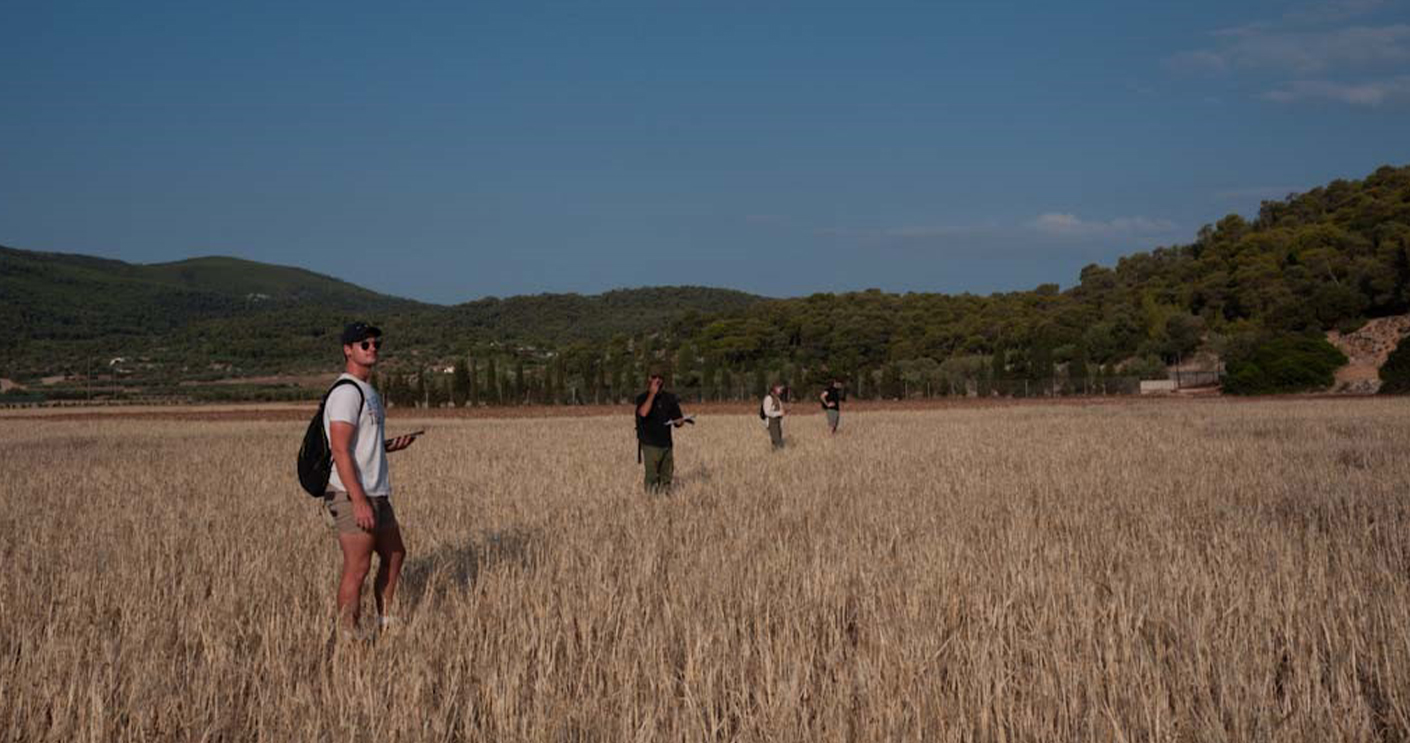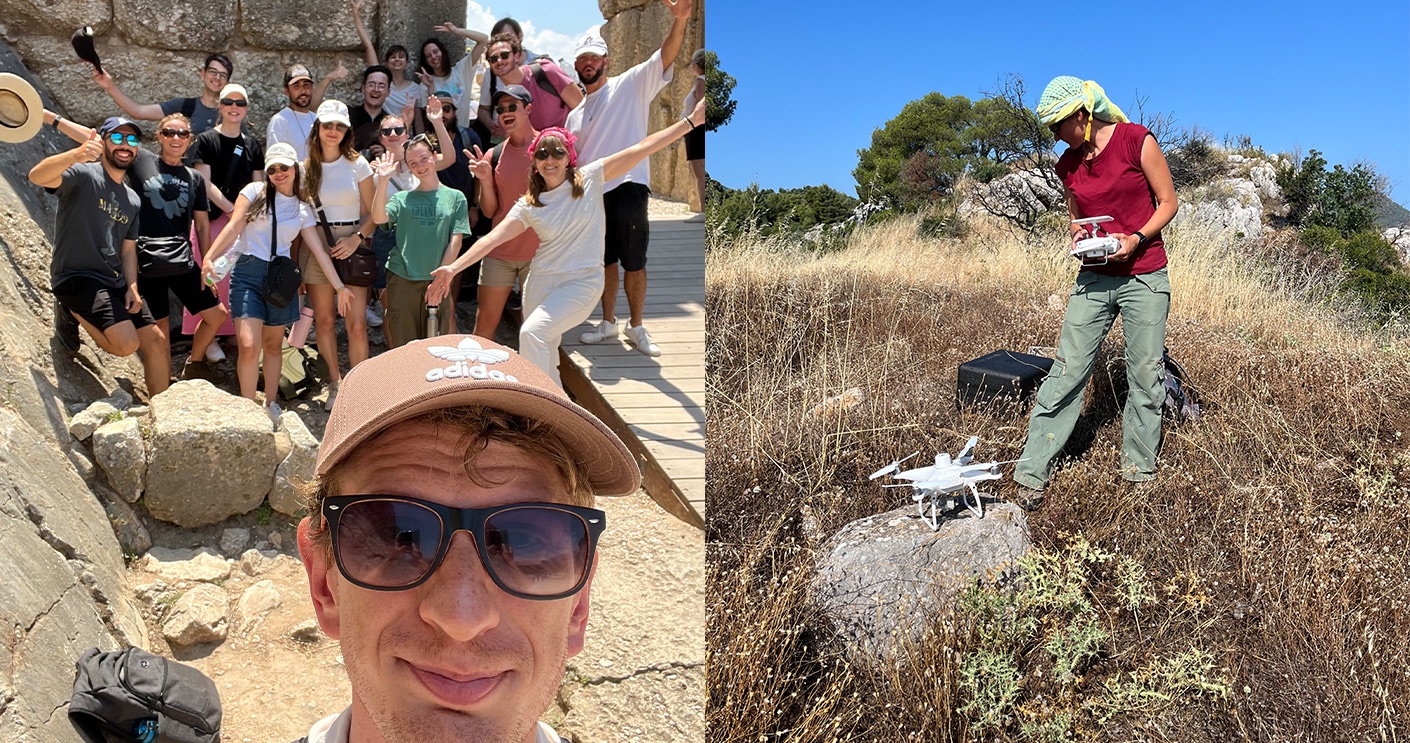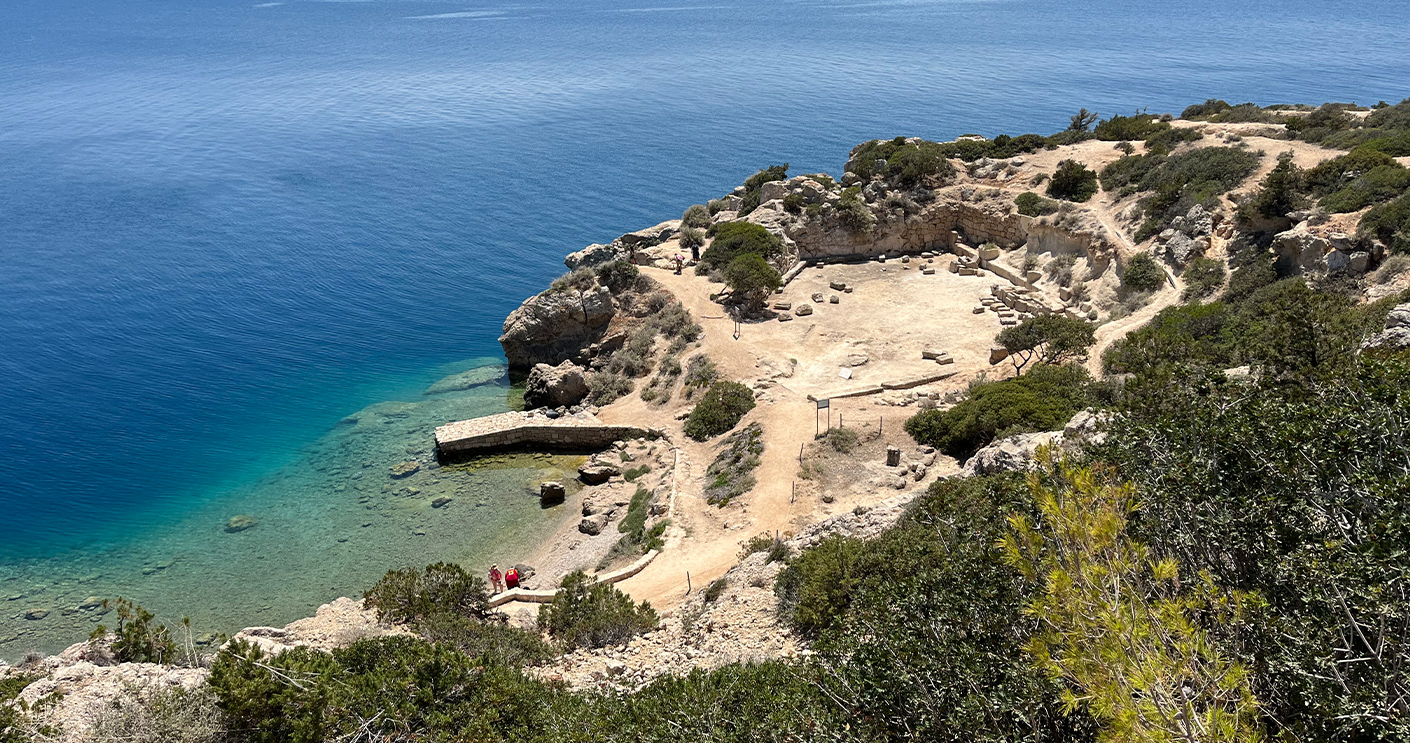View of the Sanctuary of Hera at Perachora, Greece
In the heart of ancient Greece, a group of Macquarie University students, led by Dr Susan Lupack, embarked on a transformative adventure during the 2023 Perachora Peninsula Archaeological Project.
Their goal was to reveal the hidden secrets of a bygone era and breathe new life into history. This journey was made possible through the generous support they received from the Gale Fund.

Survey line at Asprokampos
Their work began with an exploration of the eighth- to second-century B.C.E. town associated with the Sanctuary of Hera, where the team uncovered and mapped additional features of the Upper Plain, including the fascinating Dunbabin’s House. What’s more, they meticulously traced the ancient road that ran through the town, providing fresh insights into the region’s rich past.
Closer to the sanctuary, they identified high-quality sherds, which they concluded must represent remnants of pottery from an excavation in the 1930s. Dr Lupack and her team recognised the significance of these finds, and their analysis is shedding new light on the sanctuary’s history. Notably, they discovered an Argive coin featuring a distinctive wolf’s head on its obverse.

Left image: The team at Mycenae on a study tour of the site on their day off
Right image: Dr Barbora Weissova of Bilkent University, Turkey piloting a drone
The team elevated their research by introducing cutting-edge technology. With the aid of a DJI Phantom 4 RTK drone, piloted by Dr Barbora Weissova of Bilkent University, Turkey, they took to the skies to visualise the Fountain House, Building A I and the sanctuary itself. These images will serve as the foundation for interactive maps and photogrammetric models, offering an immersive experience for visitors and a comprehensive understanding of the region’s past.
Beyond the sanctuary, the project extended to the Perachora Peninsula’s agricultural plain, Asprokampos. The fieldwalkers surveyed the area, investigating the remains of two structures from the Archaic–Classical period, one believed to be a substantial building and the other a watchtower. This evidence hints at a thriving settlement that spanned millennia, dating back to the Late Bronze Age.
The team’s groundbreaking work didn’t stop there. They were invited by the Ephoreia, an archaeological agency in Greece, to explore Diokastro, a fortified citadel with a commanding view of the Corinthian Gulf. This site’s historical significance, recorded by Xenophon, suggests further exciting discoveries in the future.
Dr Lupack and her team’s dedication extended to collaborating with Greek colleagues on mapping other archaeological sites on the Perachora Peninsula, integrating their collective knowledge of the region’s rich archaeological history.
Throughout the project, students were at the heart of the action. They actively participated in every facet of the work, from total pick-ups* to fieldwalking, processing and photographing the artefacts, digitising images of the sites and working with the data collected. They even assisted with drone operations. The hands-on experience gave them a tangible connection to the past while contributing to its understanding in the present.
“These immersive experiences offer a glimpse into the professional world of archaeology, providing them with the skills they need to become the archaeologists of tomorrow,” says Dr Lupack.
“It’s a voyage into the past, but also a stepping stone to their futures.”
Read these stories for more information:
- Why pottery is history’s best friend: new exhibition
- Greek field trip: Archaeology adventure offers insights into ancient world
*In archaeology, ‘total pick-ups’ are a method of retrieving every artefact in a certain area, in order to be able to fully understand the total number of sherds and the chronological time periods they represent.
Special thanks and photo credit go to Dr Susan Lupack.


 Back to homepage
Back to homepage
Comments
We encourage active and constructive debate through our comments section, but please remain respectful. Your first and last name will be published alongside your comment.
Comments will not be pre-moderated but any comments deemed to be offensive, obscene, intimidating, discriminatory or defamatory will be removed and further action may be taken where such conduct breaches University policy or standards. Please keep in mind that This Week is a public site and comments should not contain information that is confidential or commercial in confidence.